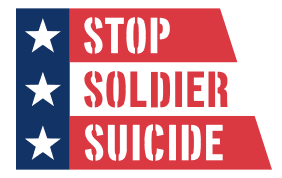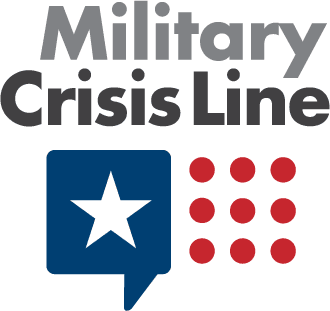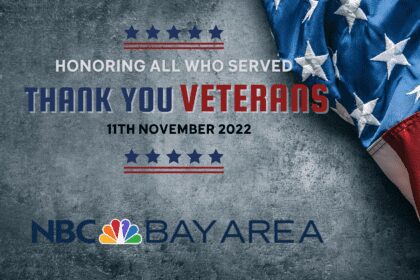As the United States withdraws from Afghanistan, many veterans are disheartened over the Taliban’s rapid takeover of the country — and are in crisis. Just over the last few weeks, suicide is on the rise. Here are some ways to reach out to our Veterans.
Veterans in Crisis as the U.S. Withdraws from Afghanistan
Many Veterans are frustrated, angry, dejected, and feel their work was all for nothing. Morale is currently at an extreme all-time low.
- 17% increase in calls on Aug 25 to the Veterans Crisis Line compared to last year at this time. (VA has not clarified if the rise in calls is directly attributable to Afghanistan or suicide of another cause.)
- 12% increase in calls on Aug 16, the day after Kabul fell to the Taliban compared to last year.
- 6% increase in calls from Aug 13 to Aug 25.
 “Stop Soldier Suicide” (non-profit group)
“Stop Soldier Suicide” (non-profit group)
- Requests for help were up by 90% and 60%, respectively, over the past two weekends.
- Isolation due to COVID-19 is a significant concern!
What to Say to a Veteran
- Check in with the Veterans you know to give them an opportunity to talk about how they’re feeling. You can make a difference, but expect that they may not want to talk or engage.
- Some Veterans are so “battle hardened” that they won’t admit they have feelings.
- Ask a general question like, “How are you doing with everything going on?” It’s not necessary to be specific (about Afghanistan) as it’ll be obvious what you’re referring to.
- Let Veterans know you care about them, thank them for their service, and remind them that their service and sacrifice were meaningful.
- If you ask a Veteran if he’s considering hurting himself, you aren’t planting the idea in their head, it’s opening the door to talk honestly.
What Not to Say
- Don’t get political.
- Don’t ask specific questions about their experience to avoid triggering anxiety, PTSD or trauma.
- Don’t say you understand what they must be feeling if you haven’t been there. Just LISTEN.
Watch for Signs of Crisis
- Significant changes in sleep, mood, appetite
- Rage or anger
- Changes in interest (has no interest in doings things normally interested in)
- Feeling excessive guilt, shame, or sense of failure
In the coming days, as August 31 approaches and the situation on the ground deteriorates, it’s expected that more Veterans will be experiencing mental health crises and struggling with thoughts of suicide.
Encourage Exercise
Negative mental health outcomes, such as drug overdoses and suicides can be helped with consistent physical activity habits.
- Research has shown enhanced mood and reductions in anxiety immediately following a single bout of exercise. It’s been shown to reduce anger, confusion, depression, and tension.
- Researchers found a 23% reduction in suicide ideation and attempts in bullied adolescents who engaged in physical activity 4 to 5 times per week compared to 0 to 1 day per week.
The Growing Number of Veterans in Crisis
- Overall suicide rate for Veterans is 1.5 times higher than civilians; for those who served after 9/11, suicide is 2.5 times higher.
- According to a Brown University study published this summer, Afghanistan war veterans and those who served after 9/11 have a greater risk of suicide than veterans from other eras.
- More than 2.5 million post-9/11 military veterans served out nation, and 80% spent some time in an overseas combat zone.
Clear Contributors to Suicidal Ideation
- High exposure to trauma — mental, physical, moral, stress, burnout
- Continued access to guns
- Difficulty reintegrating into civilian life
NOTE: Since the post-9/11 wars began, IEDs (improvised explosive devices) in warfare have increased tremendously, significantly increasing the number of traumatic brain injuries (TBIs) and polytrauma cases among service members.
- 20% of post-9/11 service members have TBIs, with many experiencing more than one during their career.
- The Veterans Crisis Line started in 2007 with 14 responders and 4 lines.
- Today, there are over 500 responders across 3 call center locations, added text and chat, and added international service for active duty and veterans.

Where Veterans Can Get Help
Service members and veterans who are in crisis or are having thoughts of suicide and those who know a service member or veteran in crisis can call the Crisis Line.
Military Crisis Line/ Veterans Crisis Line for confidential support 24 hours a day, seven days a week, 365 days a year.
- Call 1-800-273-8255 and press 1
- Text 838255
- Chat online at VeteransCrisisLine.net/Chat
![]() Karen’s Fit Tip: Reach out to our Veterans, watch for signs of crisis, thank them for their service, and help them get help.
Karen’s Fit Tip: Reach out to our Veterans, watch for signs of crisis, thank them for their service, and help them get help.





